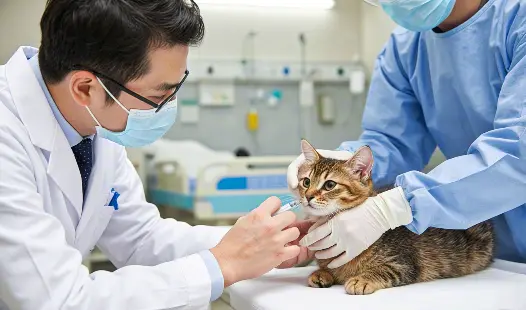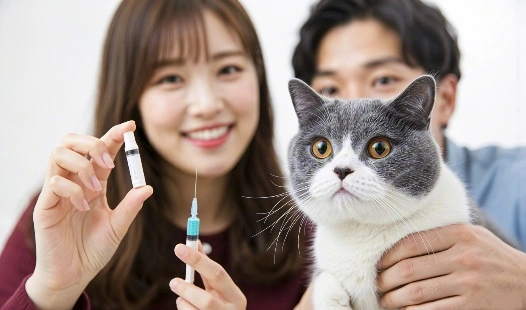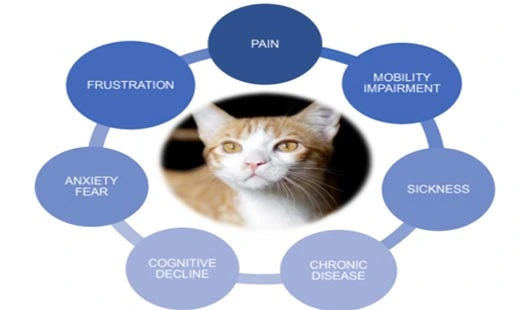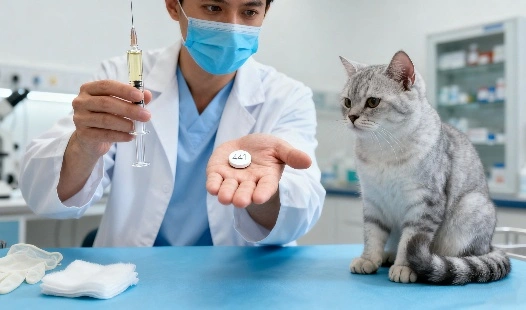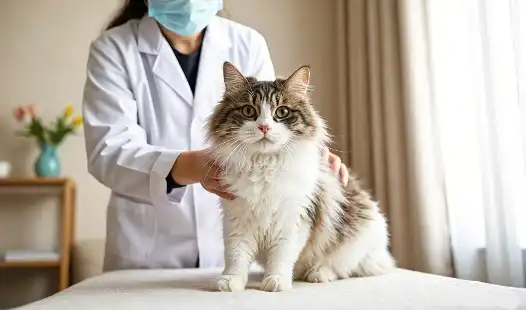GS-441524 vs. GC376: Which Drug Has More Potential?
How do GS-441524 and GC376 compare in treating FIP?
The veterinary community is buzzing about two antiviral drugs, GS-441524 fip and GC376, due to their innovative treatment of Feline Infectious Peritonitis (FIP), a once-fatal illness for cats. Veterinary professionals and cat owners alike are filled with optimism at the prospect of new therapies, which might potentially save the lives of cats who would have perished without them. Although they have a same goal—to inhibit the FIP virus—the two drugs are distinct in how they do this, how they are administered, and which patients they may be most useful for. Because of this, a significant concern has arisen among veterinarians: which of these treatments has the best chance of being effective in the long run? This essay will examine and contrast these two novel treatments, discussing their merits, shortcomings, and prospective applications.
|
|
|
How do GS-441524 and GC376 compare in treating FIP?
Both GS-441524 and GC376 have demonstrated significant efficacy in treating FIP, but they work through different mechanisms.
GS-441524: The Nucleoside Analog
GS-441524 is a nucleoside analog that interferes with viral RNA replication. It works by inhibiting the RNA-dependent RNA polymerase, effectively halting the virus's ability to replicate its genetic material.
GC376: The Protease Inhibitor
GC376, on the other hand, is a protease inhibitor. It targets the viral protease enzyme, which is crucial for processing viral proteins necessary for the virus's life cycle and replication.
Comparative Efficacy
While both drugs have shown promise, the product has gained more traction in recent years due to its higher success rate and fewer reported side effects. However, it's important to note that both drugs have their place in FIP treatment, and in some cases, they may even be used in combination.
Efficacy and side effects: A breakdown of both antiviral drugs
Let's take a closer look at the efficacy and potential side effects of each drug.
GS-441524 Efficacy
Studies have shown that GS-441524 has a success rate of up to 80-90% in treating FIP, particularly when treatment is initiated early. It has been effective against various forms of FIP, including wet, dry, and neurological manifestations.
GS-441524 Side Effects
In most cases, GS-441524's negative effects are minor and may include:
- Injection site reactions
- Temporary gastrointestinal upset
- Mild kidney stress (usually reversible)
GC376 Efficacy
GC376 has also shown promising results, with studies reporting success rates of 60-70%. It has been particularly effective in treating the wet form of FIP.
GC376 Side Effects
Side effects of GC376 may include:
- Injection site pain
- Temporary loss of appetite
- Potential for drug resistance
|
|
|
Is GS-441524 more effective than GC376 for feline coronavirus?
While both drugs have shown efficacy, current evidence suggests that GS-441524 may have an edge over GC376 in treating feline coronavirus, particularly FIP.
Higher Success Rate
GS-441524 has consistently demonstrated higher success rates in clinical trials and real-world applications. Its reported 80-90% success rate outperforms GC376's 60-70% rate.
Broader Spectrum of Effectiveness
The product has shown efficacy against various forms of FIP, including neurological manifestations, which can be more challenging to treat. This broader spectrum of effectiveness gives it an advantage over GC376.
Lower Risk of Resistance
While both drugs can potentially lead to resistance, the product's mechanism of action appears to have a lower risk of inducing drug resistance compared to GC376.
Ease of Administration
Although both drugs are typically administered via injection, oral formulations of GS-441524 are becoming available, potentially making treatment easier for cat owners and less stressful for patients.
Cost Considerations
The GS-441524 price can vary depending on the source and formulation. While it may be more expensive than GC376, many pet owners find the higher success rate justifies the cost. It's crucial to consider the long-term value when comparing its price to other treatment options.
Conclusion
In the battle against FIP, both GS-441524 and GC376 have shown tremendous potential. However, based on current evidence, the product appears to have a slight edge due to its higher success rate, broader effectiveness, and potentially lower risk of resistance.
That being said, the choice between these two drugs often depends on various factors, including the specific case, the form of FIP, and the individual cat's response to treatment. In some instances, a combination of both drugs might even be recommended.
As research continues and more data becomes available, our understanding of these drugs and their optimal use in treating FIP will undoubtedly evolve. For now, both GS-441524 and GC376 represent significant advancements in the fight against this once-fatal feline disease, offering hope to cat owners and veterinarians alike.
|
|
|
|
FAQ
1. Can GS-441524 and GC376 be used together to treat FIP?
Yes, in some cases, veterinarians may recommend using both drugs in combination, especially for severe or resistant cases of FIP. However, this approach should only be undertaken under close veterinary supervision.
2. How long does FIP treatment with GS-441524 typically last?
The standard treatment protocol with GS-441524 typically lasts for 84 days (12 weeks). However, some cases may require longer treatment periods, especially if neurological symptoms are present.
3. Is GS-441524 approved by the FDA for use in cats?
As of now, the product is not FDA-approved for use in cats. It's currently used as an experimental drug under veterinary guidance. Always consult with a qualified veterinarian before starting any treatment.
Call to Action
The mission of BLOOM TECH is to improve animal health via the development of ground-breaking products and services. In order to guarantee the highest level of purity and effectiveness for your feline patients, we manufacture our high-quality GS-441524 powder in our GMP-certified facilities. We also provide comprehensive information on the GS-441524 price.
We are able to provide affordable, high-quality organic synthesis and pharmaceutical intermediates because to our substantial background in the field. Personalised attention, upfront pricing, and first-rate product resources are all part of what our expert staff has to offer.
Don't let FIP hold your feline patients back. Explore the potential of the product with BLOOM TECH today. For more information or to place an order, contact us at Sales@bloomtechz.com. Together, we can make a difference in the lives of cats fighting FIP.
References
1. Pedersen, N.C., et al. (2019). Efficacy and safety of the nucleoside analog GS-441524 for treatment of cats with naturally occurring feline infectious peritonitis. Journal of Feline Medicine and Surgery, 21(4), 271-281.
2. Kim, Y., et al. (2016). Reversal of the Progression of Fatal Coronavirus Infection in Cats by a Broad-Spectrum Coronavirus Protease Inhibitor. PLoS Pathogens, 12(3), e1005531.
3. Murphy, B.G., et al. (2018). The nucleoside analog GS-441524 strongly inhibits feline infectious peritonitis (FIP) virus in tissue culture and experimental cat infection studies. Veterinary Microbiology, 219, 226-233.
4. Dickinson, P.J., et al. (2020). Antiviral treatment using the adenosine nucleoside analogue GS-441524 in cats with clinically diagnosed neurological feline infectious peritonitis. Journal of Veterinary Internal Medicine, 34(3), 1587-1593.

Echo
9 years of experience in chemical articles; Doctoral degree; Organic Chemistry major; R&D-4 Dept; Technology support; R&D engineer
Anticipating your Business & Technology support inquiry
Please send us the products that interest you, and we will provide you with one-on-one service
Recommended Blog
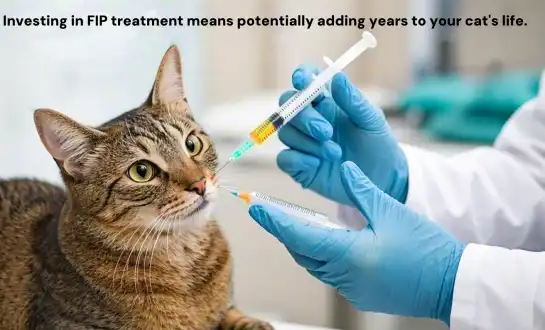
Is FIP Treatment Too Expensive? How to Budget for GS-441524?
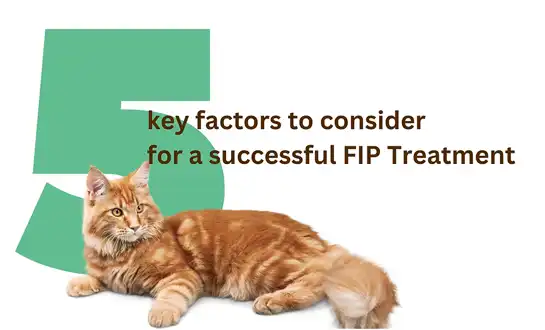
What Are the Side Effects of GS-441524? And How to Manage Them Effectively?
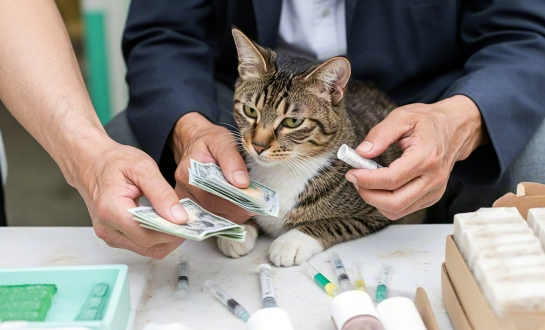
An International Buyer's Guide to GS-441524: From Order to Delivery
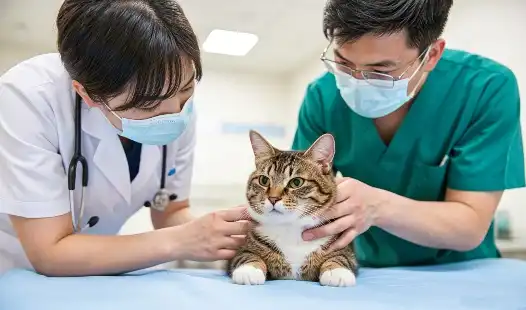
Why GS-441524 Is More Effective Than Traditional FIP Treatments?
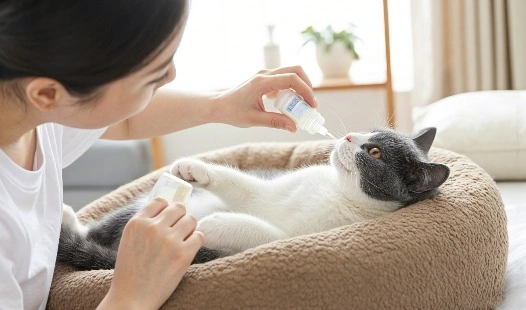
GS-441524 Treatment and Nutritional Support: An Unbeatable Combo for Recovery









